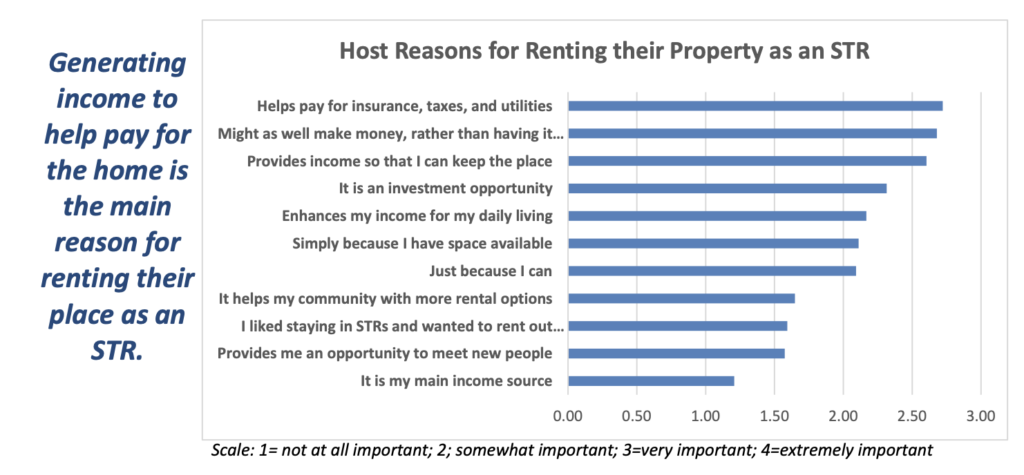Do Short-Term Rentals Contribute to Montana’s Housing Crisis?
Here we offer a brief analysis of the most common claims Montanans have been hearing about Short Term Rentals
Many Montana homeowners utilize platforms like Airbnb and Vrbo to offer their home to travelers for short term rentals. These rentals offer many residents a way to supplement their income and help support Montana’s tourism economy. Despite the benefits, some Montana community leaders have raised questions about the potential impact of these short-term rentals (STRs) on local housing markets, and some communities have implemented regulations to address these perceived impacts.
As Montana policymakers continue to debate how best to handle STRs and other types of sharing economy companies, here we offer a brief analysis of the most common claims Montanans are hearing about STRs:
Claim: STRs are displacing existing housing stock, worsening Montana’s severe housing shortage
Reality:
Looking broadly at Montana’s statewide market, a report by the University of Montana found “no direct evidence” that STRs cause housing to be unaffordable and rents to skyrocket in Montana.
National studies of STRs have found at most modest impacts on housing markets. One study found that “a 1% increase in Airbnb listings leads to a 0.018% increase in rents and a 0.026% increase in house prices.”
Meanwhile, ample evidence exists that strict local zoning and permitting regulations significantly increase the cost of housing by restricting the supply of new homes relative to demand. One 2021 study from the National Association of Homebuilders estimated that excessive regulations add as much as $93,000 to the average price of building a single-family home.
Claim: Homes are being bought up by out-of-state investment firms and converted into STRs
Reality:
Available survey data indicates that most Montana STRs are owned and operated by individual homeowners, not by large investment firms.
A 2021 survey of STR hosts by the University of Montana found that most STR hosts rent to meet financial needs in their household, not as an investment:
 Source: https://scholarworks.umt.edu/cgi/viewcontent.cgi?article=1419&context=itrr_pubs
Source: https://scholarworks.umt.edu/cgi/viewcontent.cgi?article=1419&context=itrr_pubs
Referencing a 2022 report on short term rentals commissioned by the city, Missoula’s Housing Policy Specialist noted that “most often” the city has found people hosting STRs are “motivated by closing some kind of financial need for their household” rather than as an investment opportunity.
A 2016 assessment conducted by the City of Whitefish, a resort community with a greater amount of STRs than other Montana communities, noted that investment buyers were “not a significant component” of the housing market at that time. The 2016 assessment noted that more frequently, homes turned into STRs were owned by early-retiree second home buyers who purchase homes with the intent to retire in 5-10 years and use STR income to pay for the home.
In an updated needs assessment for Whitefish in 2022, the report highlights a significant increase in STR listings in the local market in recent years. The report suggests the increase in STR listings may in part be driven by both investor and second home buyer activity, but it should be emphasized that the report did not provide specific data as evidence to support this claim.
Conclusion
As debates continue about STRs, policymakers should take a cautious approach that considers both the benefits STRs provide to Montana’s economy as well as the lack of data supporting claims that STRs negatively impact the state’s housing market in any significant way.
